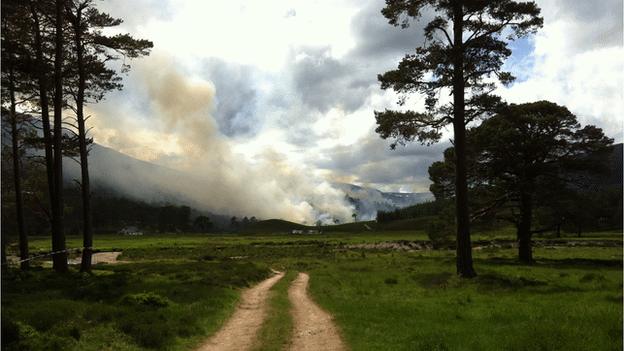Early Cairngorm mountain people evidence found
- Published
Archaeologists are working in Glen Geldie
People were active in the Cairngorm mountains thousands of years earlier than previously thought, according to archaeologists.
Excavations at sites deep in the Cairngorm glens around the Mar Lodge Estate in Aberdeenshire have produced radiocarbon dates showing humans were presents far back as 8100 BC.
Previous estimates of hunter-gatherer groups in the area were about 5000 BC.
The earliest dates come from a site in Glen Dee.
Archaeologists working on the National Trust for Scotland's Mar Lodge Estate uncovered the evidence.
It indicated some places were being revisited over many thousands of years.
Turned on head
Trust archaeologist Dr Shannon Fraser said: "It is incredible to think that what we have discovered at this one spot in a vast landscape may represent a small group of people stopping for only a night or two, repairing their hunting equipment and then moving on."
He said the glens which had been examined were "very chilly even with all our modern outdoor clothing - it is hard to imagine what it must have been like in the much harsher climate 8,000 years ago."
Aberdeenshire Council archaeologist Bruce Mann said: "Not so many years ago we thought we understood the glens of the Cairngorms as a landscape largely empty of people in prehistory.
"Now this work has turned such thinking on its head, and shows the importance of why we support these projects.
"In the future we'll be better informed about how we manage that land, while providing an amazing story for visitors to the area."
The National Trust for Scotland and archaeologists and environmental scientists from the University of Aberdeen, University of Stirling and University College Dublin have been working on the project.
Excavation director Dr Graeme Warren will give a public talk about the latest discoveries on 21 July at Mar Lodge, Braemar.
- Published19 June 2014
